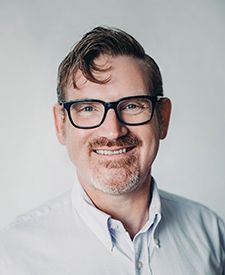We have four experienced physicians who have performed more than 6,000 colonoscopies since 2010. We are proud to offer colonoscopies at each of our 3 clinics.
Why get a Colonoscopy?
Colon cancer is the second most common cause of cancer death in the United States. It's expected to cause about 52,580 deaths during 2022. According to the American Cancer Society, the overall lifetime risk of developing colorectal cancer is about 1 in 23 (4.3%) for men and 1 in 25 (4.0%) for women.
Many factors affect your risk for developing colorectal cancer such as family history, smoking, being overweight, poor diet, lack of exercise, IBD, and age. The death rate from colorectal cancer has been dropping in both men and women for several decades. One reason is that colorectal polyps are now being found and removed more often by screening colonoscopies. Cancers are also being found earlier when they are easier to treat, thanks to screening colonoscopies. Screening typically starts at age 45 but may be earlier based on your family history.
The Colonoscopy procedure is an extremely effective tool in the prevention and early detection of colon cancer. Many lives are saved if precancerous growths (polyps) are discovered before they become cancerous. If colon cancer is detected, earlier is better. Early detection of colon cancer greatly increases the chances for successful treatment.
If you are 45 years of age or older or have a family history of colon cancer, talk with your provider about scheduling this important screening procedure. We offer screening colonoscopies at each of our three clinics.
Ask your physician today if you are due for your next colonoscopy.
Prepping for your Colonoscopy
You will need to do a bowel preparation to clean out and empty your colon before your procedure. This is done by taking a combination of laxative and stool softening medications that are in a solution that you drink and in pill form. These medications cause you to have several bowel movements to clear your colon. It's very important that your colon is empty before your colonoscopy. If there's stool (poop) inside your colon, your doctor may not be able to see polyps or other problems inside your colon, and you may have poor results or need to repeat the procedure.
Download our Colonoscopy preparation form
Your Colonoscopy: What to expect on Procedure Day
During your colonoscopy procedure, we gently insert a flexible camera scope in your rectum to examine the entire colon. The camera projects to a TV monitor that we watch throughout the procedure. We look for cancer, pre-cancerous polyps, and any other abnormalities. We can remove the polyps during the procedure and send them to a laboratory for examination. Based on the pathology results, we determine the next best step and when your next colonoscopy should be. You will need someone to drive you to and from your colonoscopy appointment because you will be given medications that make you sleepy and comfortable during the procedure.
Patient Testimonials
Related Articles

Colorectal Cancer and the Importance of Screenings
March is National Colorectal Cancer Awareness Month and this is a topic that is not openly talked about enough.




